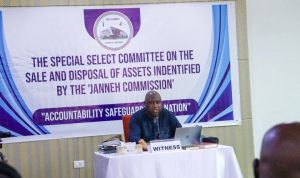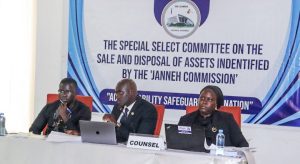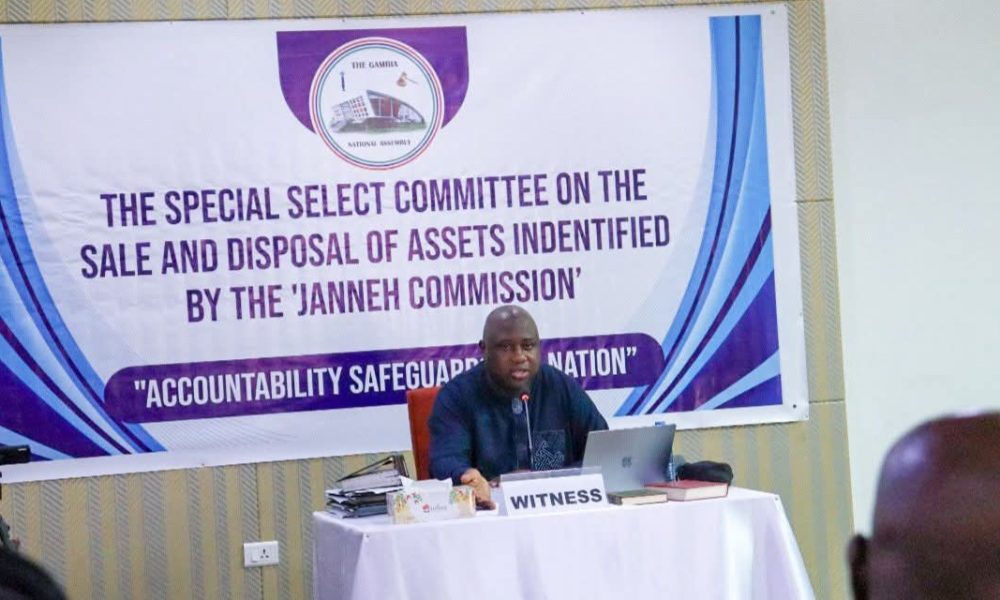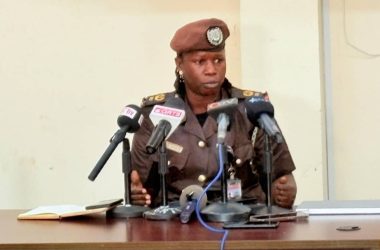The Attorney General and Minister of Justice, Dawda A. Jallow, on Monday appeared before the National Assembly’s Special Select Committee investigating the sale and disposal of assets belonging to former President Yahya Jammeh.
These assets were identified by the Janneh Commission of Inquiry, which was set up in 2017 to look into Jammeh’s financial dealings and asset acquisitions during his 22-year rule.
The committee hearing, which marked a significant step in parliamentary oversight of post-Jammeh transitional justice measures, focused on the establishment, structure, and functioning of the Janneh Commission, formally known as the Commission of Inquiry into the Financial Activities of Public Bodies, Enterprises and Offices as regards their dealings with former President Yahya Jammeh and others.
The Commission was established under Legal Notice No. 15 of 2017.
During the session, committee members pressed for clarity on the legal basis for the Commission’s formation. The discussion centred around the use of Section 200 of the 1997 Constitution and the Commissions of Inquiry Act. Minister Jallow confirmed that these provisions were the legal instruments used to create the Commission and set its mandate.
Counsel Lamin M. Dibba, who is supporting the committee, questioned Minister Jallow about the selection process for key figures in the Commission, including the Receiver, Commissioners, and Lead Counsel. In response, Jallow acknowledged that he was not part of the Ministry at the time and therefore could not provide detailed insight into the appointment process. However, he defended the decision to engage private legal counsel, stating it was a common and acceptable practice when the Ministry lacked the internal capacity to handle such a task.
The committee also scrutinised the operational independence of the Janneh Commission. Minister Jallow told lawmakers that the Commission drafted its own work plans and budgets, and functioned as an independent entity. However, he admitted that while the Commission had administrative independence, it depended on the Ministry of Justice for financial resources and logistical support.
When asked about the frequency and nature of communication between the Ministry and the Commission during its operations, Minister Jallow again noted that he could not speak to the specifics, as he was not yet in office during that period. He nonetheless assured the committee that, to his knowledge, the government allowed the Commission to operate without undue interference.
Concerns were raised by some committee members regarding whether the Ministry’s role in budgetary allocation compromised the Commission’s independence. Jallow responded that while resource dependence posed limitations, the Commission’s investigative and decision-making processes were left intact and unaffected by ministerial influence.

The hearings form part of the legislature’s broader effort to scrutinise the handling of Jammeh’s vast wealth and the government’s actions following the recommendations of the Janneh Commission. The Commission, which submitted its report in 2019, found that Jammeh had siphoned off hundreds of millions of dalasis and foreign currency from state resources and recommended the seizure and sale of various properties, businesses, and bank accounts linked to him.
As the hearings continue, the Special Select Committee is expected to delve deeper into the details of how Jammeh’s assets were identified, seized, managed, and sold. The goal, committee members say, is to ensure that the process was conducted transparently and in accordance with the law.

The committee will reconvene on Tuesday, when Mr. Sourahata B. Semega Janneh, Chairperson of the Janneh Commission, is expected to testify.





